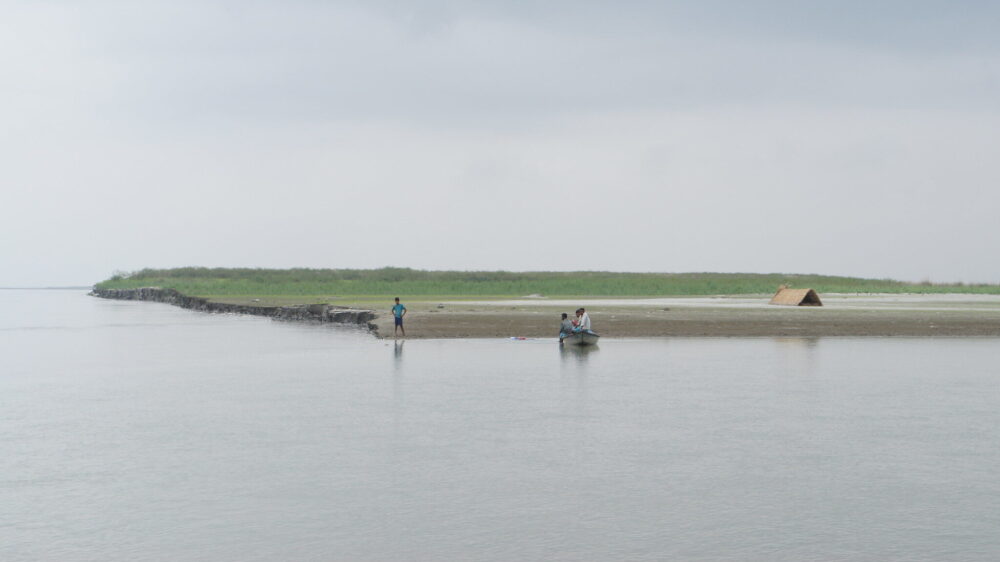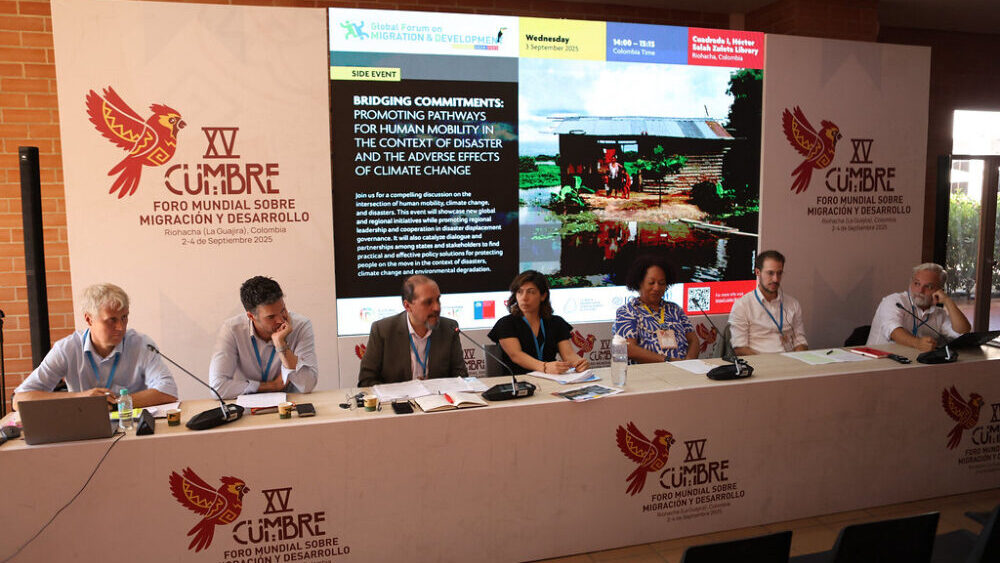Two New Tools to Help Address Disaster Displacement Now Available
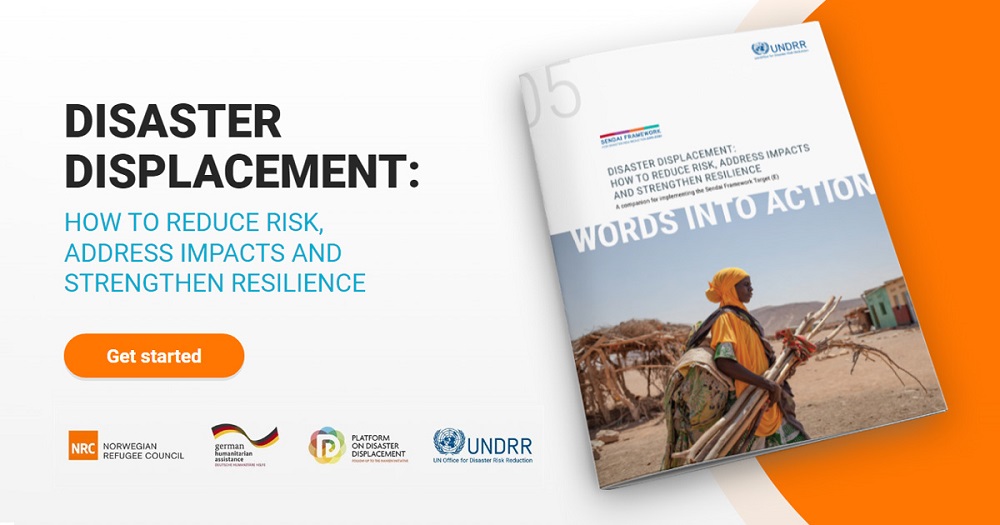
Are you wondering how to address displacement in your disaster risk reduction (DRR) policies and practices? Would you like to learn more about how to reduce displacement risk, address displacement impacts and strengthen resilience?
The Norwegian Refugee Council (NRC), the United Nations Office for Disaster Risk Reduction (UNDRR) and the Platform on Disaster Displacement (PDD) are proud to launch two new online tools to help DRR policy makers and practitioners build the knowledge and skills needed to address disaster displacement in their own communities and countries. The tools – a checklist and an eLearning course – are now available online in several languages and free to use.
Developed from the UNDRR (United Nations Office for Disaster Risk Reduction) Words into Action Guidelines, both the Checklist and eLearning course offer practical guidance to help governments and regional organizations integrate disaster displacement into their DRR strategies, policies and laws, in accordance with the Sendai Framework for Disaster Risk Reduction 2015-2030. The Sendai Framework recognizes disaster displacement – the forced or involuntary movement of people associated with disasters – as an important concern. Target (E) of the Sendai Framework sets out to ‘Substantially increase the number of countries with national and local disaster risk reduction strategies by 2020’.
The Words into Action tools support States to meet this target by providing DRR policy makers and practitioners with knowledge to prevent, prepare for and respond to disaster displacement.
A Checklist to help assess gaps and set priorities
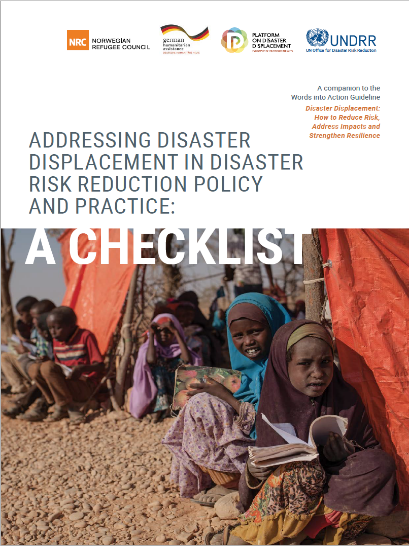
A companion tool to the WiA guide, Addressing Disaster Displacement in Disaster Risk Reduction Policy and Practice: A Checklist provides a list of elements that DRR policy makers and practitioners are invited to consider in assessing whether their policies, strategies, and practices align with the Sendai Framework’s guidance on disaster displacement.
The Checklist is available in English and Spanish, and will be available in French and Portuguese here: https://www.undrr.org/publication/words-action-guidelines-disaster-displacement.
Interested in translating the Checklist into another language? Please contact info@disasterdisplacement.org and nrcgeneva.policy@nrc.no to get the conversation started!
The eLearning: a 5-hour course to gain the insight and skills needed to address disaster displacement
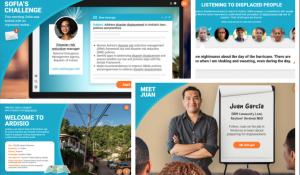
The new interactive eLearning course provides users an opportunity to immerse themselves in learning how to reduce displacement risk, address its impacts and strengthen resilience. The eLearning course is available free of charge on the Kaya global learning platform at kayaconnect.org. It is currently available in both English and Spanish, and will soon be translated into French.
The self-paced course includes video stories, practical exercises, relevant resources, interactive and scenario-based tasks, case studies and short assessments. It encourages users to reflect on their experiences and apply the knowledge gained to their unique circumstance, creating an engaging and dynamic learning environment.
Interested in rolling out the training for your government organization or constituency? Please contact info@disasterdisplacement.org and nrcgeneva.policy@nrc.no to enquire about possibilities of support!
Piloting the eLearning: Lessons from the Americas
Prior to today’s official launch, the eLearning has been tested with the Central American Coordination Center for the Prevention of Natural Disasters (CEPREDENAC) in Central America. Over thirty government representatives from all seven CEPREDENAC member countries took part in the eLearning course, in January 2021. This included virtual workshop sessions, hosted by CEPREDENAC, PDD, NRC and UNDRR, aimed to support participants in conducting the eLearning and collecting their feedback to further improve the tool. In the concluding session, participants highlighted the wealth of information and guidance the eLearning offered, from guidance on applying humanitarian standards in disaster displacement responses, to coordinating effectively with community leaders in responding to displacement in disaster situations.
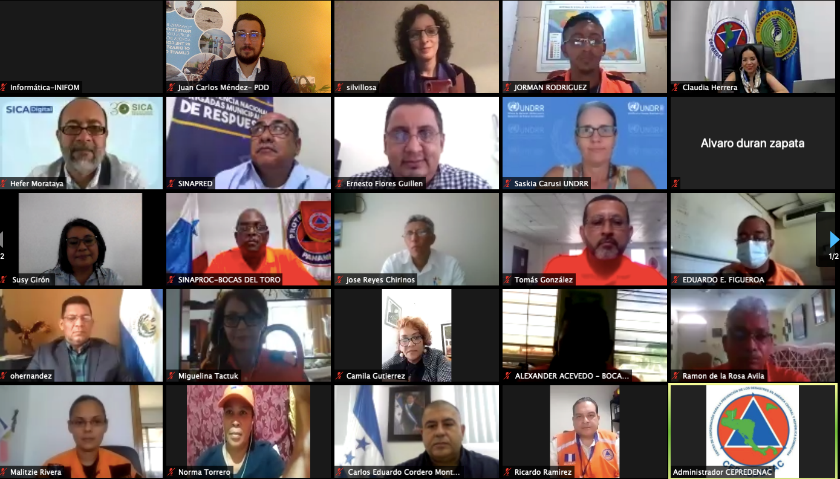
“I found the content very dynamic and practical. It allows the user to go deep into the topic of displacement, to relive experiences and find similarities with those presented. The content and its presentation are most appropriate, and the course is an excellent learning tool. I will apply it in our planning and preparedness”, said Mr. Ramón Rosa Avila from the Dominican Republic, participant of the CEPREDENAC pilot.
Mr. Ricardo Linarte from Nicaragua also added: “As a fire-fighter, this course helped me a lot to understand how to address people’s needs during evacuations. I like the very real way in which each case is presented in different cities, working as a team to generate solutions to disaster displacement by prioritizing affected and host families.”
The eLearning has recently also been used as a training tool to support the Government of Chile. Over 50 participants from across a range of ministries and agencies in Chile participated in workshop sessions utilizing the WiA Guidelines, Checklist and eLearning tools, in April 2021. Hosted by the government of Chile in partnership with PDD, NRC, UNDRR and IOM, the tools were used to engage intersectorial actors across all levels of the Chilean government to further develop awareness of disaster displacement and inform the ongoing process of drafting national guidelines on human mobility, disasters and climate change. Warmly received by all participants, the eLearning course provided participants with an educational tool to enhance knowledge on disaster displacement while the virtual workshops encouraged a whole-of-government approach, inspiring participants to share lessons-learned, good practices and ongoing initiatives.
The WiA Guide, Checklist and Disaster Displacement e-Learning course have been developed through a partnership between the NRC, UNDRR, and the PDD, through the generous support of the German Federal Foreign Office.
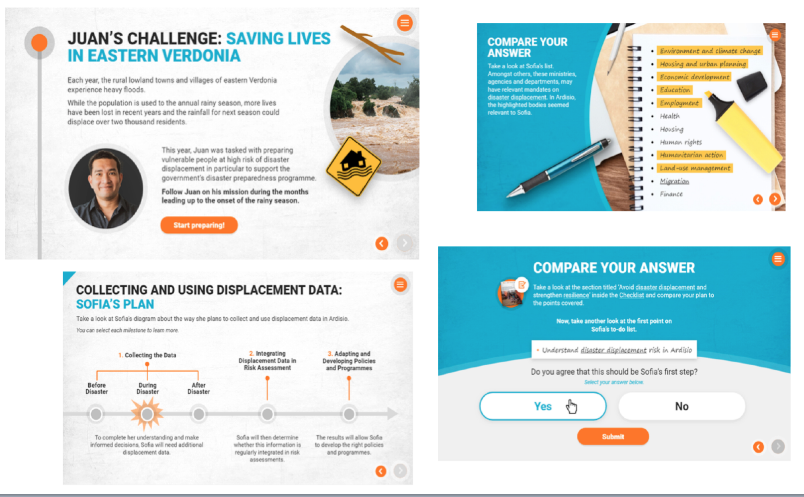
Useful Links
Learn more about CEPREDENAC, the United Nations Office for Disaster Risk Reduction, and the Norwegian Refugee Council
Download the Guidelines
 Loading...
Loading...
Learn more about PDD’s work on DRR in our Workplan 2019-2022:
